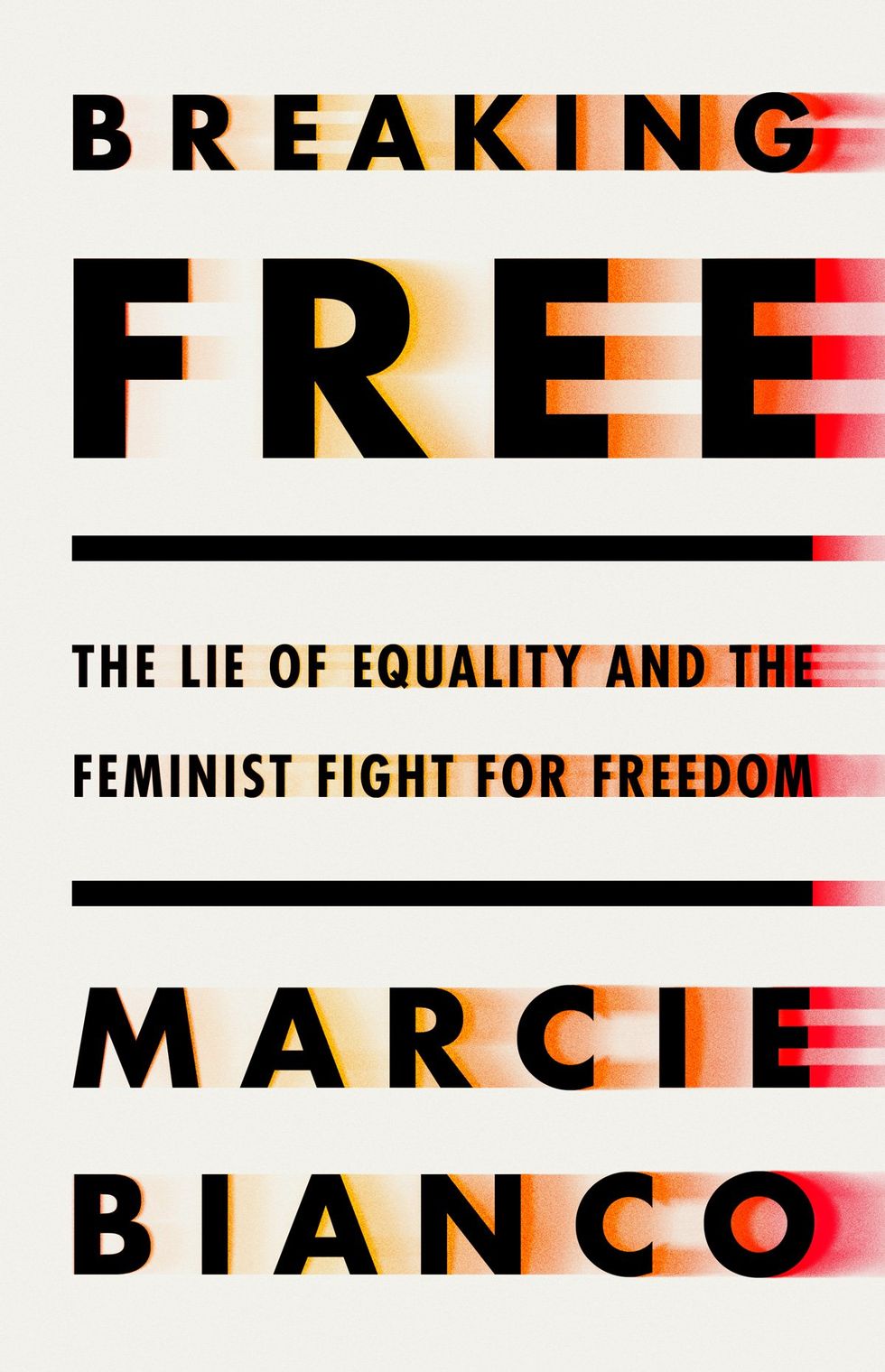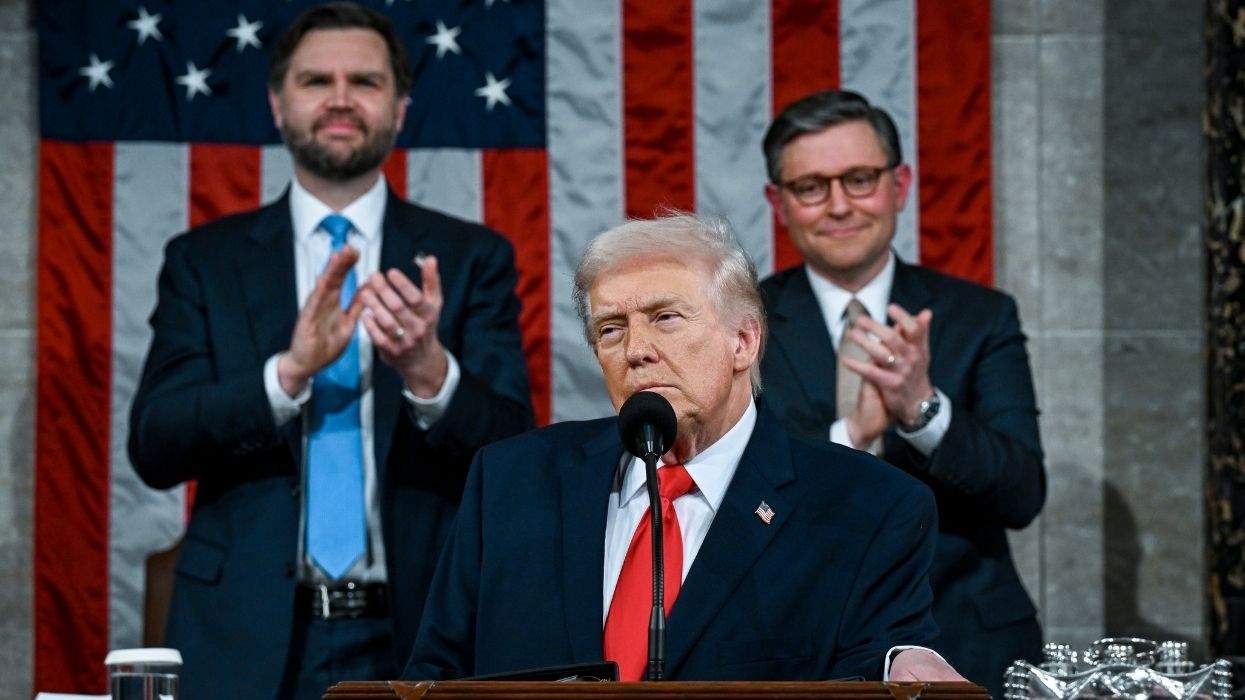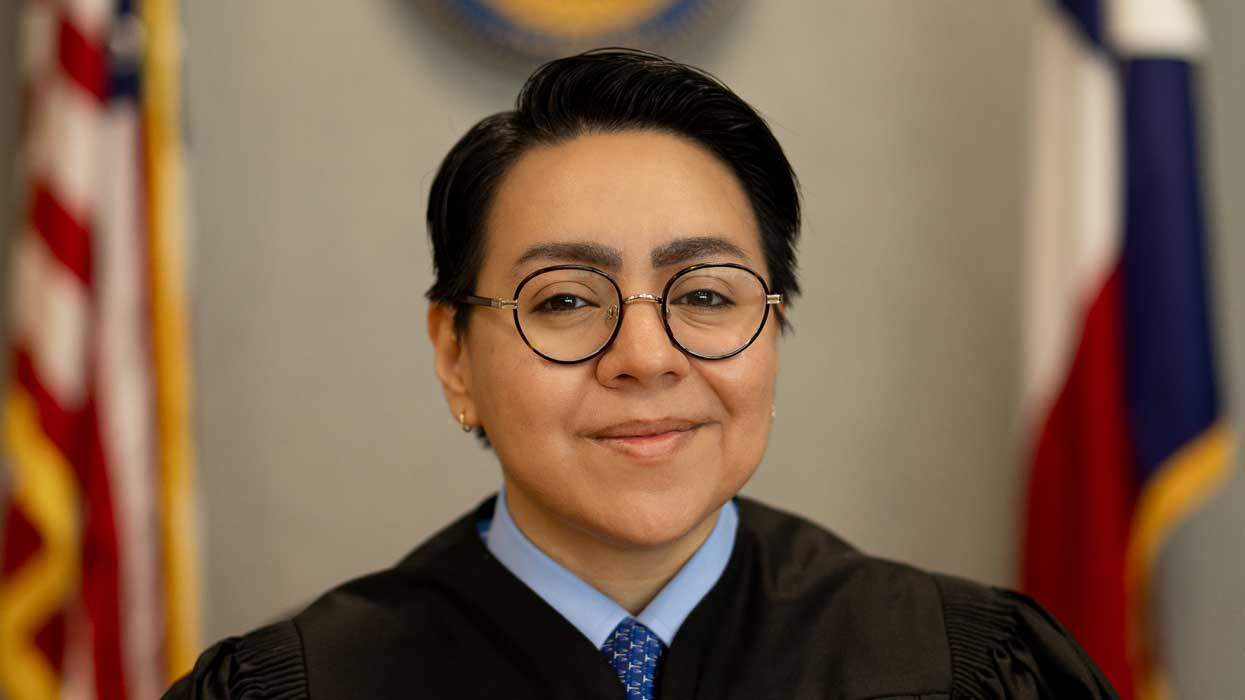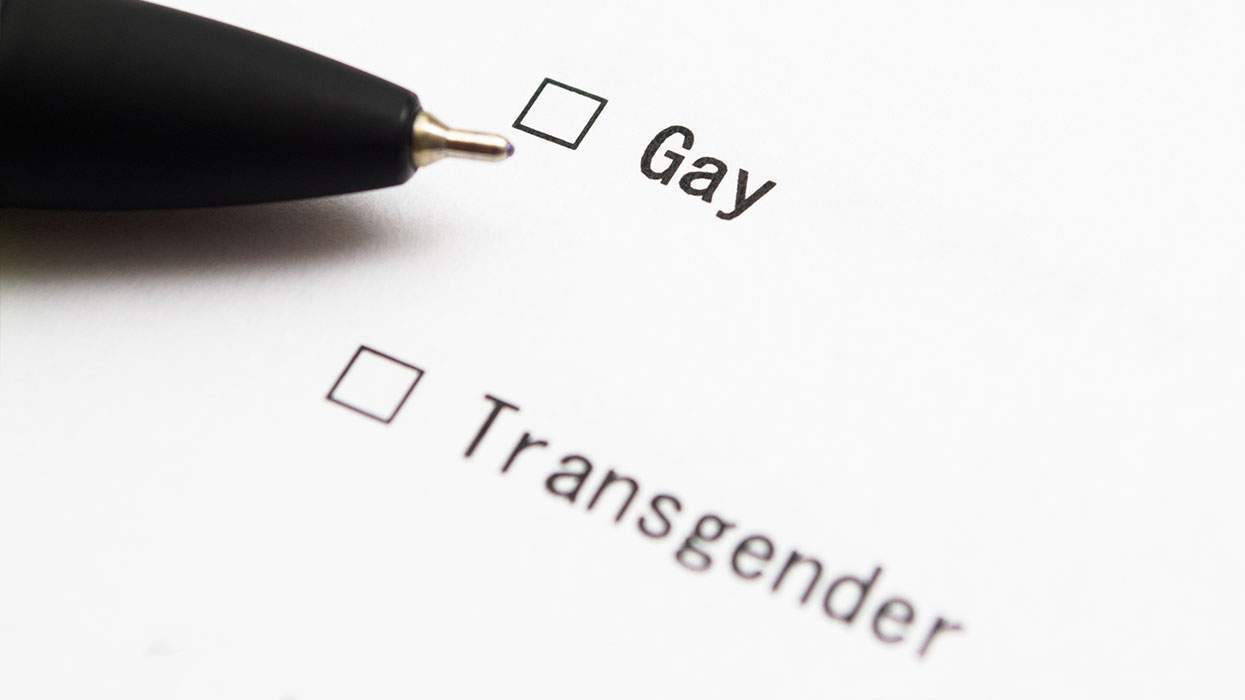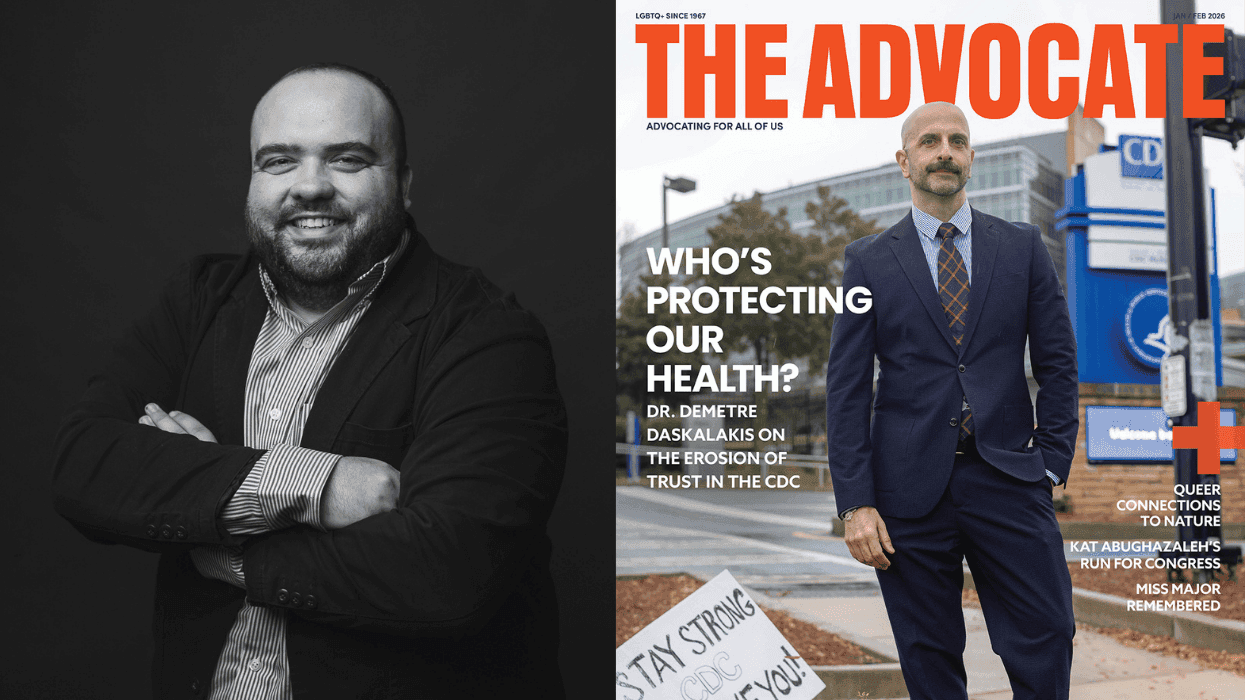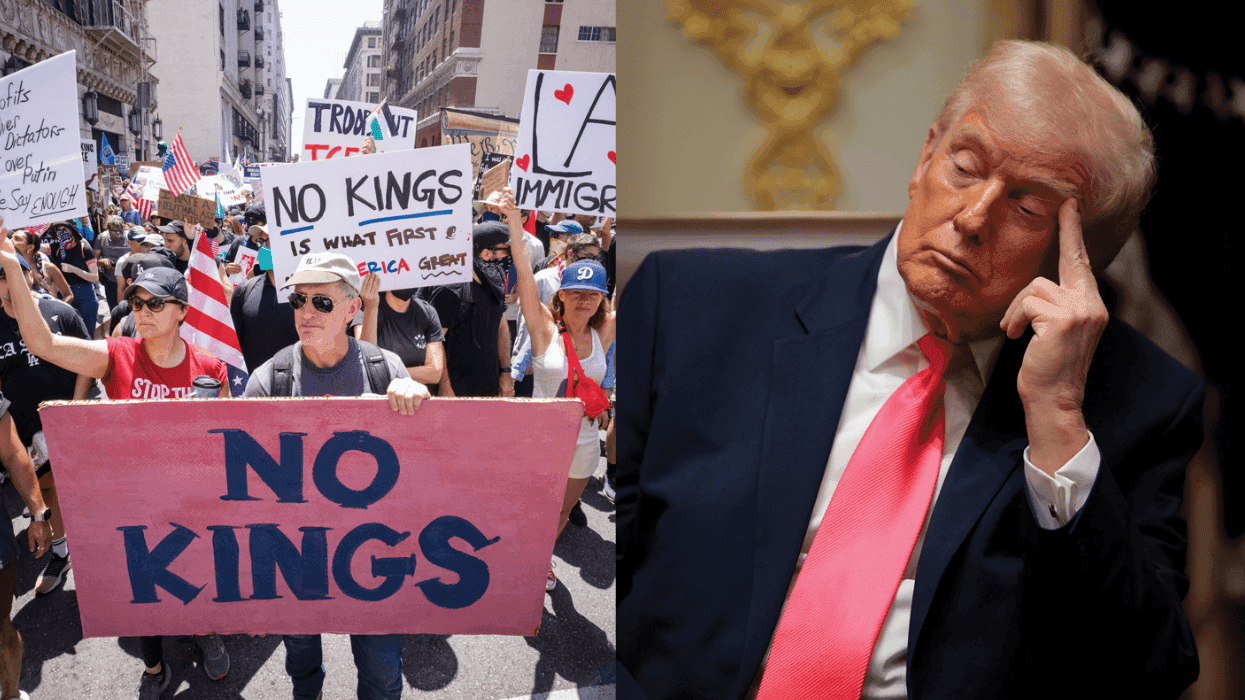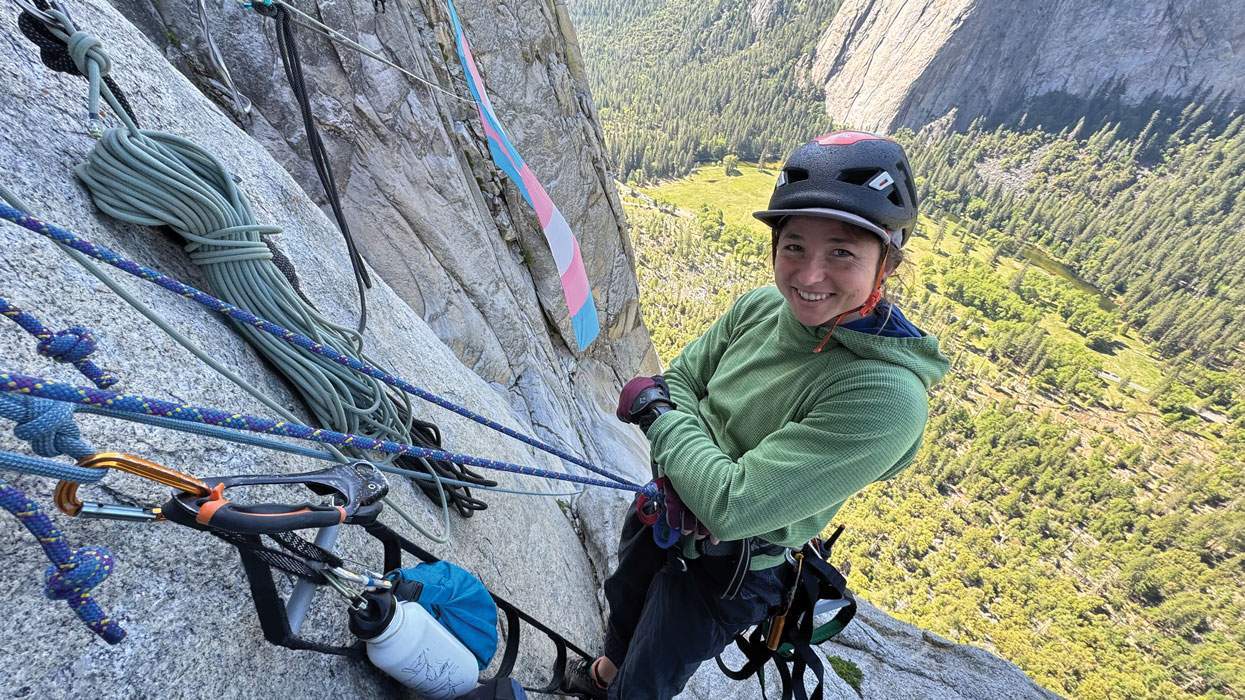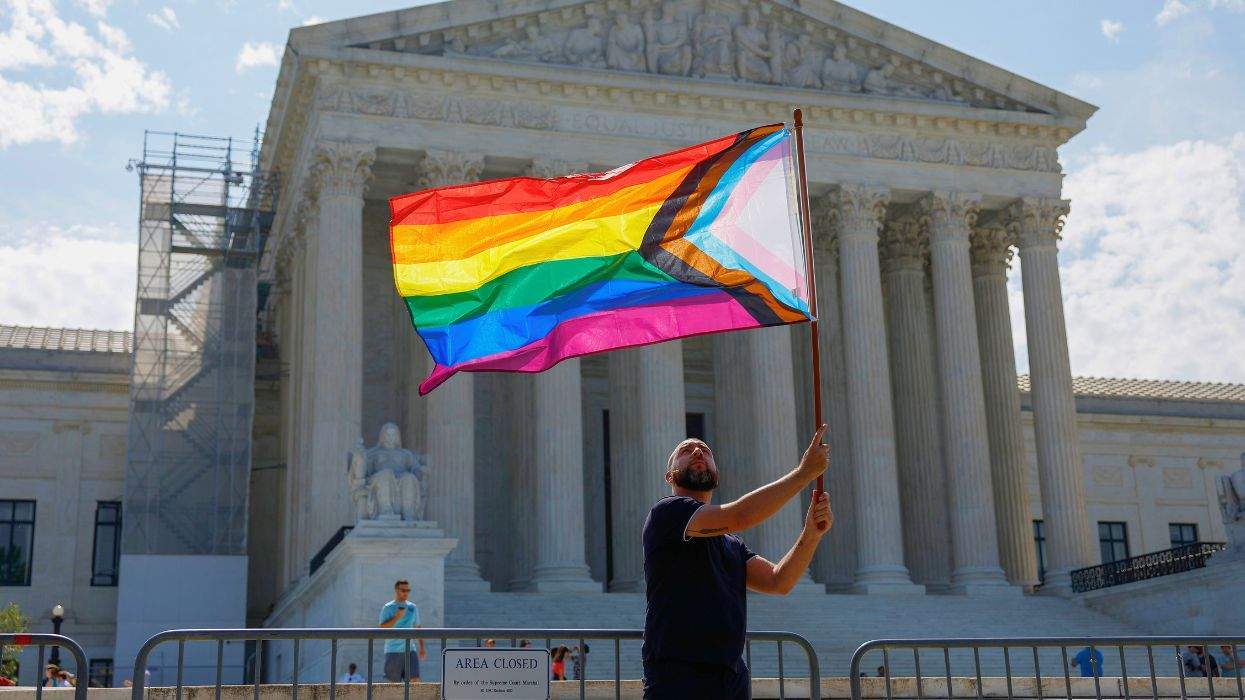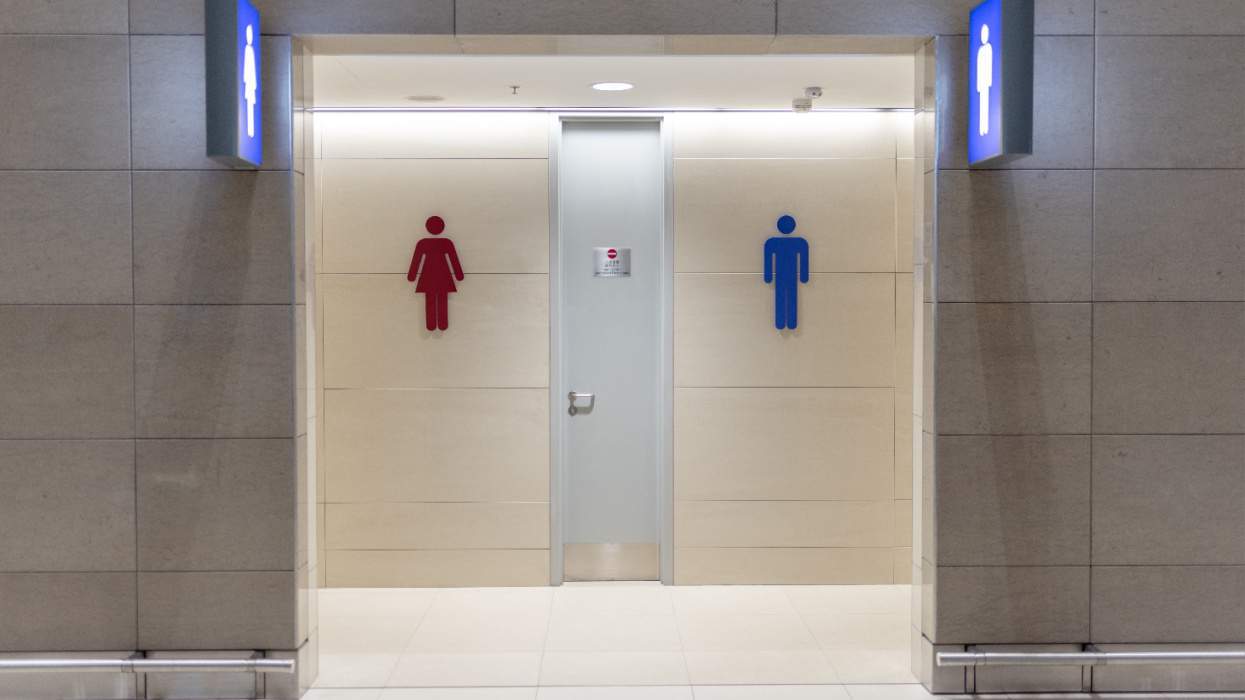“A feminism dedicated to equality cannot offer us the ideas, language, or framework to create fulfilling lives,” Marcie Bianco writes in her encyclopedic new book, Breaking Free: The Lie of Equality and the Feminist Fight for Freedom.
Keep up with the latest in LGBTQ+ news and politics. Sign up for The Advocate's email newsletter.
Her bold and expansive book may rankle some in the trenches for equal pay or marriage equality, but Bianco’s “book of ideas,” as she describes Breaking Free, is tied in part to her experience. She also states early on that she is, “a capital-A, capital-F Angry Feminist,” inviting readers to “stereotype me further: I am an angry lesbian feminist.” Through astute academic analysis, an exhaustive knowledge of court cases that have decided privacy rights, and a dash of The Real Housewives of Beverly Hills and other pop culture references, Bianco makes an irrefutable argument for freedom.
“I have never once heard anyone say, ‘I feel equal,’ and that equality is a feeling,” Bianco says. “There are plenty of moments when I have felt free when I can identify moments of just this release within myself or this expression in which I feel absolutely fully embodied within myself.”
Breaking Free is in part a workbook for how to begin thinking beyond equality as the goal and a guidebook for allowing big ideas to wander and take root. In her introduction and first few chapters, Bianco lays out a history of the quest for equality in “The Equality Mindset” and “The Equality System.” Early in her book, Bianco elucidates the impossibility of fully lived equality even when the legal right to it exists.
A former adjunct professor and a cultural critic whose work has appeared on CNN, NBC Think, and Vanity Fair, Bianco shares that in class she ran a thought exercise, asking the female students to raise their hands if they would participate in the legal right to roam New York City’s streets topless. Not one of her female students said they would feel comfortable taking advantage of the 1992 law that Bianco says she jokingly refers to as “topless equality.” Their reasons for not partaking in that certain right are rooted in a fear of “harassment, assault, or any form of harm, including lecherous stares, from men and women,” Bianco writes. It’s a laser-focused, simple example of equality failing to guarantee not only equal treatment but also safety.
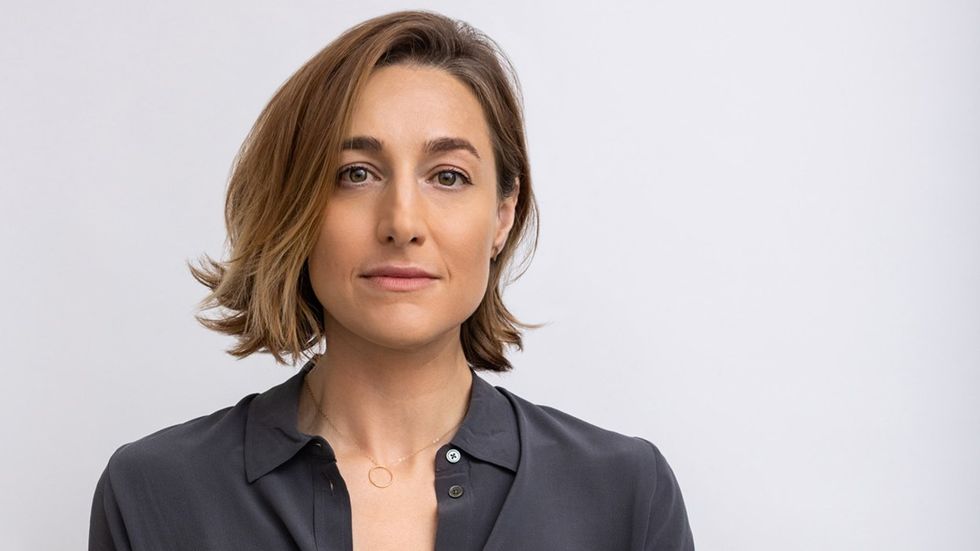
Throughout Breaking Free, Bianco lays out numerous examples of how the legal promise of equality can’t guarantee one’s equal treatment or safety. She does so by excavating the Equal Rights Amendment, which guaranteed equal treatment for men and women under the law and has not been ratified 51 years after its proposal in 1972, and court cases like Brown v. Board of Education, the 1954 case that ruled that public segregation in schools was unconstitutional but that could not stop racism. Among her compelling arguments is a call to eradicate the gender binary.
“Fundamental to our liberation is realizing that the gender binary is not just a social construct but the most significant structural support of the white supremacist cis-heteropatriarchy…. And it is only when we free ourselves of the gender binary that women can define ourselves on our own terms,” Bianco writes.
Confident and clear-eyed in her anecdotes and theories in Breaking Free, Bianco has been considering freedom and equality since she was a kid.
“I write this in the introduction — from my early days of childhood, of feeling different, whether I was told I had to put on a t-shirt while being outside because I was a girl or things being excused or rationalized because I was a girl,” Bianco says. “[I] always felt social differences and power imbalances, and those kernels took root but didn’t blossom until I was in [college and graduate school].”
In 2022, ahead of the Senate’s passing of the “The Respect for Marriage Act,” Bianco wrote a piece for NBC Think calling the legislation, “at best…a preemptive Band-Aid should the Supreme Court try to overturn Obergefell v. Hodges,” the court case that legalized same-sex marriage across all 50 states in 2015. Bianco was one of a few voices critical of the “Respect for Marriage Act,” hailed as a victory for equality across the country by LGBTQ+ organizations including the Human Rights Campaign and GLAAD. The notion that same-sex couples could achieve equal treatment through legislation was on Bianco’s mind for years and serves as an impetus for Breaking Free.
“There was that rhetoric around the time when marriage equality was gaining steam of, We only want the same thing. We don’t want anything more, anything different. We don’t want special rights or special privileges,” Bianco says. “I thought it was very interesting language. Those moments were the kernels of the ‘equality mindset,’ which I talked about in the book, with this idea of, in essence, generations of social conditioning that have hemmed us in, [then] wanting the same thing within institutions that fail to realize those rights.”
“[Same-sex] marriage is legal, but at the same time, there are [more than] 500 anti-LGBTQ+ pieces of legislation throughout the states right now,” she adds. “All of these moments have kind of coalesced and made me say, ‘You know, what? Maybe equality isn’t it.’”
The second part of Bianco’s book encourages readers to begin to incorporate a freedom practice into daily life through the kind of choice that abandons American-centric individualism (she cites gun ownership, the refusal to wear masks during the pandemic to protect oneself and others) and centers the collective. Throughout Breaking Free, Bianco credits feminists who’ve come before her including Barbara Smith, bell hooks, and Angela Davis, explaining, “My definition of self-creation is based in the definition of Black self-determination.”
“I talk about self-creation as that process of self-determination. But it’s the practice [of self-creation] that really elevates these aesthetics and elevates art and creativity as constituted elements of how we design our lives,” Bianco says. “It is how we design our lives… who we interact with, who we build relationships with, who we build community with, which is, in essence, our politics.”


